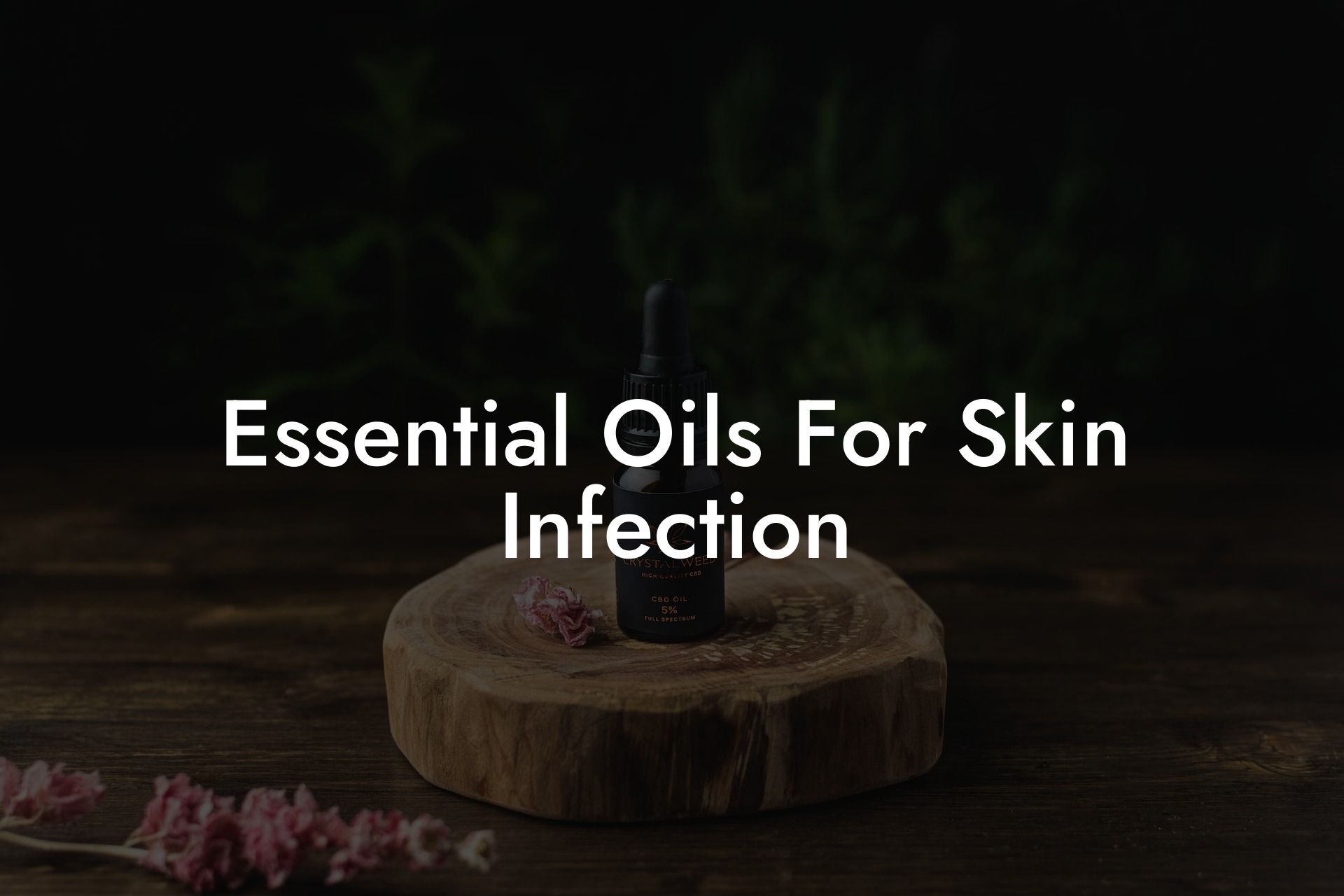Skin infections can be frustrating and sometimes painful experiences. Thankfully, nature has provided us with essential oils that can help soothe and heal these common ailments. In this blog post, we’ll discuss how essential oils can be used to treat various skin infections, making us feel better and promoting overall wellbeing. Let’s explore these powerful, natural remedies!
Table of Contents
Why Essential Oils Work for Skin Infections
Essential oils have been used for centuries for their antibacterial, antifungal, and antiviral properties. They are highly concentrated plant extracts that contain potent compounds that can help combat a variety of skin infections. The unique combination of ingredients in essential oils allows them to penetrate deep into the layers of the skin, providing relief and promoting healing.
Common Types of Skin Infections and Essential Oils to Use
- Acne: Acne is a common skin condition that occurs when hair follicles become clogged with oil and dead skin cells, leading to inflammation. Some essential oils that can help reduce acne include tea tree oil, lavender oil, and clary sage oil. These oils are known for their antimicrobial and anti-inflammatory properties.
- Fungal Infections: Fungal infections, such as athlete’s foot or ringworm, occur when fungi invade the skin, causing redness, itching, and irritation. Some effective essential oils for combating fungal infections include oregano oil, tea tree oil, and clove oil. These oils have strong antifungal properties, making them ideal for treating these types of infections.
- Bacterial Infections: Bacterial infections of the skin, such as cellulitis, can be painful and swollen from inflammation. Eucalyptus oil, tea tree oil, and lavender oil are known for their antibacterial properties and can help fight off these infections.
How to Use Essential Oils for Skin Infections
It’s essential to always dilute essential oils with a carrier oil before applying them to the skin, as using them undiluted can cause irritation or even burn the skin. Carrier oils like coconut oil, argan oil, or jojoba oil can be used to safely dilute essential oils. Additionally, it’s important to do a patch test before applying essential oils to the skin, as some individuals may have an allergic reaction to specific oils.
Dilution Ratios:
- For adults, a 2% dilution is a safe guideline. This equates to 12 drops of essential oil per 1 ounce of carrier oil.
- For children and sensitive skin, a 1% dilution is recommended. This equates to 6 drops of essential oil per 1 ounce of carrier oil.
Application Methods:
- Direct Application: Mix the essential oil with the carrier oil and apply directly to the affected area. Gently massage the oil into the skin with clean hands.
- Compress: Mix a few drops of essential oil with the carrier oil and add it to a bowl of warm water. Soak a clean cloth in the water, wring it out, and apply it to the affected area for up to 20 minutes.
- Aromatherapy: Adding essential oils to a diffuser or inhaling them directly from the bottle can help support the immune system and promote a general sense of wellbeing as the body fights off infection.
Essential Oils For Skin Infection Example:
Laura was struggling with a case of ringworm on her arm. She decided to try tea tree oil, diluted with some coconut oil, to treat the infection. After applying the mixture to the affected area twice a day for a week, she noticed the redness and itching subsiding. Within two weeks, her ringworm had completely cleared up and her skin was back to normal.
Essential oils can be a powerful and effective natural remedy to help combat various skin infections. By understanding their uses and how to safely apply them, we can make the most of these wonderful gifts from nature. If you found this guide helpful, please share it with friends and family to help them discover the benefits of essential oils. Be sure to explore our other guides on Oshu Oils to continue your essential oil journey, and check out the Oshu Oils range of essential oils to find the perfect one to enhance your overall wellbeing.





















